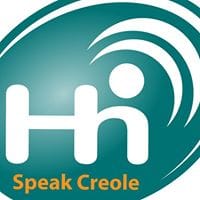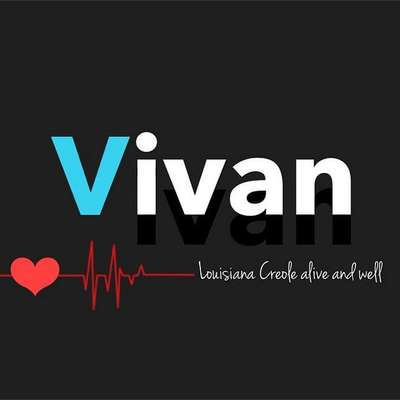
Learn French Creole: Essential Words and Phrases Plus Resources
Creoles are languages that are based on other languages. They take that parent language base and build a whole new language on top of it. For French Creole, I bet you can guess which language it’s built upon: French.
For those of you who are curious about French Creole—and for those of you who want to take the leap to learn it—we’ve compiled this handy post.
In it, we’ll walk you through the basics of the three French-based creoles, show you how they sound on video, give you some popular words and phrases in the creoles and lastly, we’ll let you know where you can learn them online.
Contents
- What Is French Creole?
- Haitian Creole
- Louisiana Creole
- Antillean Creole
- Why Learn French Creole?
- And one more thing...
Download: This blog post is available as a convenient and portable PDF that you can take anywhere. Click here to get a copy. (Download)
What Is French Creole?
Creoles are fully developed languages that are based on a mix of different, previously established languages. Since these are all French creoles, they’re all based at least partially on French.
You may have heard of a pidgin, but it’s worth noting that pidgins and creoles are two different things. The short version is that a pidgin is a simplified mix of two or more languages so that their speakers can communicate with one another, whereas a creole is a full-fledged language with native speakers.
There are many French creoles—or creoles where one of the parent languages is French—that exist all over the globe.
There are also some other French creoles and these include Guianese, Mauritian, Réunion and Seychelles.
But in this post, we’ll focus on the big three: Haitian, Louisiana and Antillean Creoles.
Haitian Creole
Haitian Creole is perhaps the most well-known of all French-based creole languages.
It is spoken by 10 million people worldwide—mostly in Haiti—but it also boasts speakers in places like the Bahamas, the Cayman Islands, the Dominican Republic, Guadalupe and Puerto Rico.
Haitian Creole, which has its roots in French and various African languages brought over from West African slaves, was recognized alongside French as one of Haiti’s national languages in 1961—gaining the recognition it had long deserved.
The language has three different dialects: Northern, Central and Southern. While not as widespread as French, it still plays a prominent role in Haitian life.
To get an idea of what Haitian Creole sounds like, check out this video from the Creole Institute:
Haitian Creole Phrases
If you’re interested in learning a bit of the language, below are a few words and phrases to get you started:
| Haitian Creole | English |
|---|---|
| Sak pase? | How are you? |
| Mwen byen | Very well |
| Kon si kon sa | So-so |
| Sa fè lontan | Long time no see |
| Mwen rele | My name is |
| Anchante | Pleased to meet you |
| Bonswa | Good evening |
| Bòn nwi | Goodnight |
| Orevwa | Goodbye |
| Bon vwayaj | Have a good trip |
Where to Learn Haitian French Creole
HaitiHub is a website dedicated to helping people learn the language by offering tons of diverse resources.
They have loads of educational videos separated into different modules such as learning the basics, studying different tenses and practicing the correct pronunciation. Additionally, they offer cultural videos so you can learn things like Haitian prayers, common gestures and typical phrases used by the natives.
Many videos are free, but HaitiHub also offers a membership option that allows learners to access even more lessons and tutorials.
Aside from videos, HaitiHub offers flashcards to teach practical expressions that’ll help you in everyday life. They also keep a blog where they write articles about Haitian culture and offer lessons on the country’s geography, history and more.
Sweetcoconuts is a blog with loads of free resources for language learners.
Their site includes audio recordings so you can learn proper Haitian French Creole pronunciation, videos with exercises to practice your new language skills and quizzes to test your level.
Their blog is also updated regularly with cultural tidbits, new vocabulary lists and information about Haiti.
You can’t go wrong with Sweetcoconuts, as it’s an active site that’ll answer any question you have about the language and provide you with new learning tools each month.
Louisiana Creole
First off, let’s clear up one common misconception: Louisiana Creole isn’t the same thing as Cajun French.
Cajun French is actually a dialect of French, whereas Louisiana Creole is a fully developed creole language.
Louisiana Creole was heavily influenced by both the slaves brought over from Haiti and emigrating planters from the Lesser Antilles. Despite it being a well-known language, it’s currently estimated to have under 10,000 speakers, putting it on the endangered list.
As such, it’s more important than ever that people decide to study this language and save it from extinction.
If you think you might be interested in learning the language, check out this YouTube video from Louisiana Historic and Cultural Vistas, which covers how to pronounce Louisiana Creole pronouns:
Louisiana Creole Phrases
Additionally, below are a few words and phrases to introduce you to this beautiful language:
| Louisiana Creole | English |
|---|---|
| Bonjou | Hello |
| Éy laba | Hey there |
| Pas un bon jou | Have a good day |
| Komen to yê? | How are you? |
| Mo bon, mèsi | I'm good |
| Ki çe tô nom? | What is your name? |
| Mo nom çé | My name is |
| Mo pens | I think |
Where to Learn Louisiana Creole
Louisiana Creole Course on Memrise
One of the best places to learn Louisiana Creole online is this course on Memrise, a learning platform that specializes in using flashcards. The lessons are broken down into tons of grammar studies and vocabulary training so you can start with whichever category you’d like to learn first and progress from there.
While you gain access to hundreds of flashcards, you also get accompanying audio clips so you can practice pronouncing Louisiana Creole correctly.
I find that their approach to learning is very easy, as the whole thing is guided, showing you the order in which they recommend lessons, tracking your progress and more. Plus, what I love about Memrise is that it automatically saves and tracks your progress while you learn.
Additionally, they’re continually adding flashcards and audio files and their resources are free to use!
Check out our full review of Memrise here.
Antillean Creole
Antillean Creole has an estimated 400,000 speakers in Martinique alone, with additional speakers in countries like Dominica, Venezuela, Guadeloupe and many more.
The language contains elements from French, various languages spoken in the Caribbean and many African languages.
The language is similar to Haitian Creole with a few major differences that you’ll probably be able to recognize by simply listening to some common Antillean Creole phrases in this Language Learning Tips video:
Antillean Creole Phrases
Check out a few words and phrases below:
| Antillean Creole | English |
|---|---|
| Bonjou | Hello |
| Sou plé | Please |
| Mèsi | Thank you |
| Eskizé mwen | Excuse me |
| Ka ou fè? | How are you? |
| Wouj | Red |
| Vè | Green |
| Blé | Blue |
| Lendi | Monday |
| Sanmdi | Saturday |
Where to Learn Antillean Creole
If you like the look and sound of Antillean Creole, a great place to start seriously learning is A Virtual Dominica. This site focuses specifically on Antillean Creole in Dominica and offers tons of free educational resources.
They’ve got comprehensive vocabulary lists and grammar lessons separated into basic categories such as pronouns, colors, numbers, days, months and more so that you can become well acquainted with the basics.
Furthermore, they include sample sentences and explanations about the vocabulary when needed.
As their site is Dominica’s official tourism site, they also offer an overall look at cultural information and suggest additional resources for continuing your study of Antillean Creole.
FluentU takes authentic videos—like music videos, movie trailers, news and inspiring talks—and turns them into personalized language learning lessons.
You can try FluentU for free for 2 weeks. Check out the website or download the iOS app or Android app.
P.S. Click here to take advantage of our current sale! (Expires at the end of this month.)
Why Learn French Creole?
Now that you know what French creoles are, you may be wondering why you should take the time to learn them.
First, each creole represents a different culture, so learning about them will expand your worldview.
Additionally, creoles are often overlooked when it comes to deciding what language to learn. Most students think of French, English, Mandarin and the like before considering a creole. This means that by learning a creole, your marketability in the workforce will surpass many who don’t have the same unique skill set.
If you’ve already started studying French, you’re equipped to learn a French creole quickly. Having a basis in French can help you learn a French creole faster since some of the vocabulary and grammar is quite similar. Likewise, learning a French creole can reinforce and boost your French skills.
Take a look at the following examples to see just how closely related these languages can be.
Haitian Creole: Bonjou — Hello
French: Bonjour — Hello
Haitian Creole: Byen venu or byenveni — Welcome
French: Bienvenue — Welcome
Antillean Creole: Souplé — Please
French: S’il vous plaît — Please
Try to build your general French knowledge before you dive into the world of creole since knowing French will help you immensely when studying its various sister languages.
Now that you’ve got the lowdown on all things French-based Creole, it’s time for you to decide which one you’re going to start with!
Download: This blog post is available as a convenient and portable PDF that you can take anywhere. Click here to get a copy. (Download)
And one more thing...
If you like learning French on your own time and from the comfort of your smart device, then I'd be remiss to not tell you about FluentU.
FluentU has a wide variety of great content, like interviews, documentary excerpts and web series, as you can see here:

FluentU brings native French videos with reach. With interactive captions, you can tap on any word to see an image, definition and useful examples.

For example, if you tap on the word "crois," you'll see this:

Practice and reinforce all the vocabulary you've learned in a given video with learn mode. Swipe left or right to see more examples for the word you’re learning, and play the mini-games found in our dynamic flashcards, like "fill in the blank."

All throughout, FluentU tracks the vocabulary that you’re learning and uses this information to give you a totally personalized experience. It gives you extra practice with difficult words—and reminds you when it’s time to review what you’ve learned.
Start using the FluentU website on your computer or tablet or, better yet, download the FluentU app from the iTunes or Google Play store. Click here to take advantage of our current sale! (Expires at the end of this month.)






